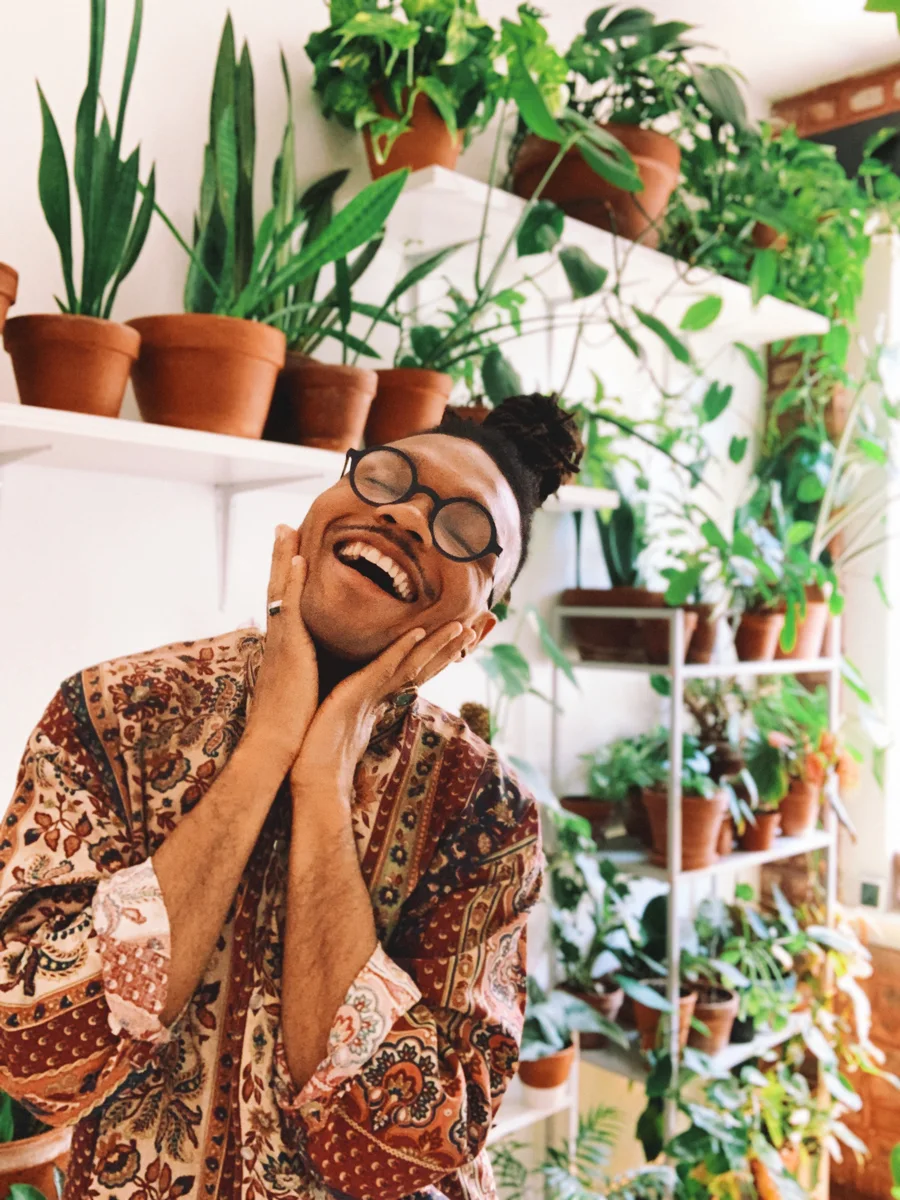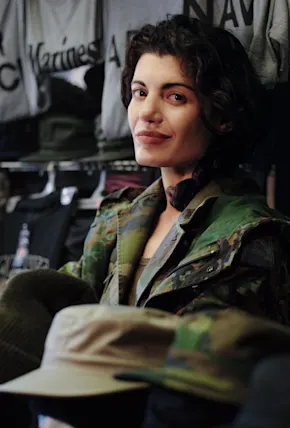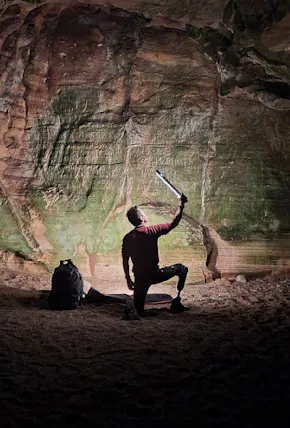From earthing to ecotherapy, no shortage of research shows many health benefits of being outdoors. The Japanese exalt shinrin-yoku, or forest bathing, a simple concept of spending mindful and intentional time around trees. And in Norway, you have friluftsliv, a cultural concept on par with hygge that describes a way of life that is spent exploring and appreciating nature.
But New Yorker Christopher Griffin, who's recently taken the internet by storm as Plant Kween, doesn't ascribe to these therapeutic modalities. Instead, they bring the outdoors indoors, in a most remarkable way, reaping the same benefits from inside their NYC apartment—which houses well over 160 distinct plants, by the way.

Plant Kween as a concept and an IG account feels a little like Billy Porter meets Little Shop of Horrors. On Instagram you can find them in natty blazers and kitten heels sashaying down aisles of uptown garden centers as if they were walking the runway on day two of New York Fashion Week. If Plant Kween is the face of their impressive platform of devoted followers (256k at time of publishing), then Christopher is the brains steering this whole planty ship. Their journey with their "green gurls" they so playfully call their indoor plants, started as an exploration of learning something new outside of their work as a full-time educator. This endeavor ended up as a crash course in plant care, and in return, their indoor garden became the mirror they needed for proper self-care.
What makes Christopher's transformation into Plant Kween so captivating is how they've come to find the thrill in unabashed Black Joy while teaching the world how to care for one plant at a time. Listen to our conversation here and read on for a condensed transcript below.
We write about the great outdoors. You demonstrate the joys of the great indoors. Do you consider yourself outdoorsy or indoorsy?
I think I can fit myself into both. I enjoy hiking, and I probably would do it more if I had greater access. I'm very good at adapting to my environment. New York didn't offer the opportunity to be as outdoorsy as I wanted to be, so I brought the outdoors indoors.

You're known for having over 160 plants in your New York apartment. Do you see a connection with the concepts around Nature Therapy and your own plant practice?
When I started on this journey about four years ago, I was really searching for a new adventure for myself. I'm an extrovert, so I get a lot of my energy from other people, which I enjoy. I think I was looking for an opportunity or a moment where I could nurture myself by myself. Really, my grandmother started me out on this journey. I thought of her and her passion for her plants and gardening and how she had such inner peace. She was just this magical being that had amazing energy. She always looked at her garden, she was always around other people, but you could tell she was nurturing herself in her garden.








